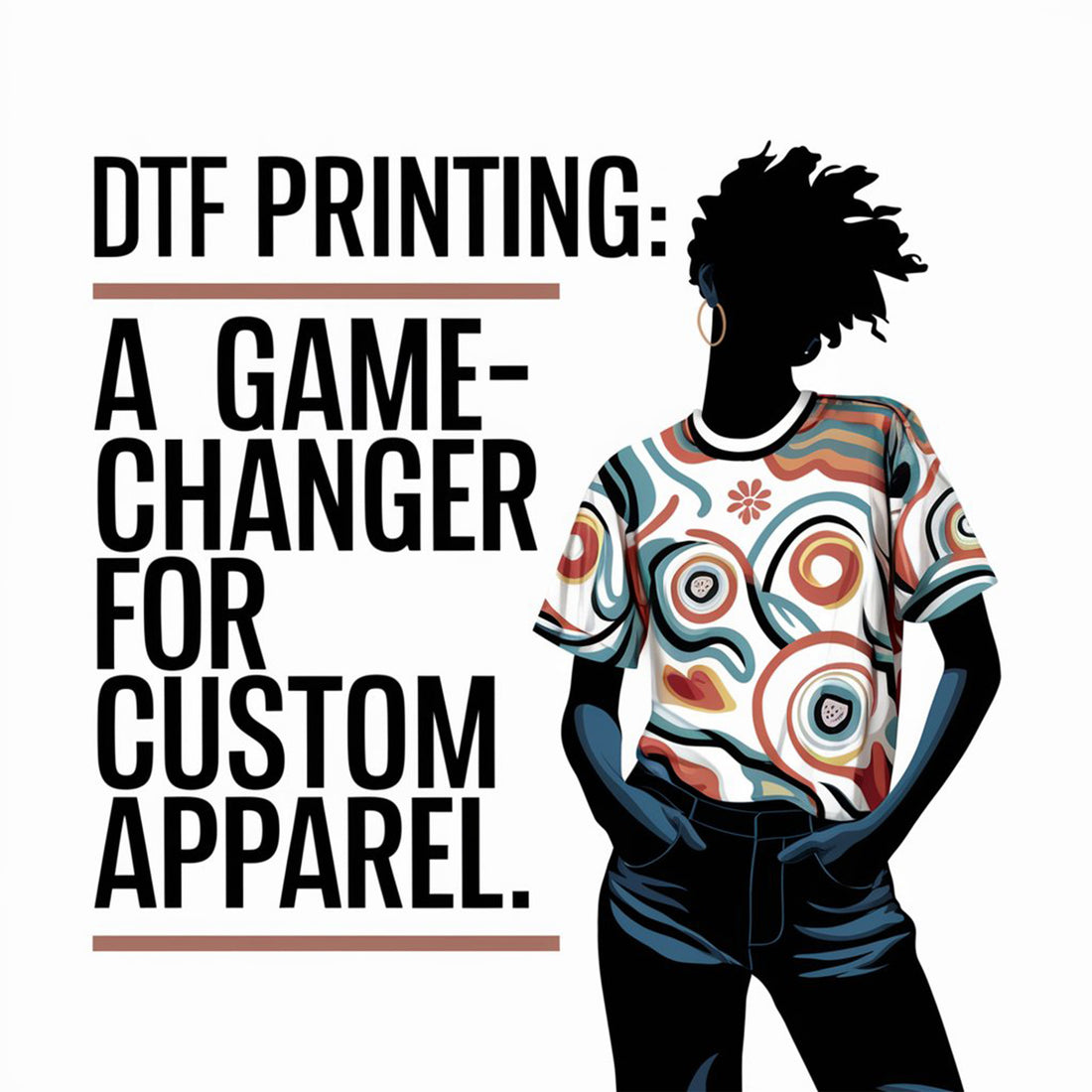
DTF Printing: A Game-Changer for Custom Apparel
Share
Direct to Film (DTF) printing is emerging as a versatile and high-quality printing method in the custom apparel industry. This blog will explore the process of DTF printing, its benefits, and how it compares to other printing techniques.
What is DTF Printing?
DTF printing involves printing designs onto a special film, which is then transferred onto fabric using a heat press. This method allows for vibrant and durable prints on a variety of materials.
How DTF Printing Works
- Design Preparation: The design is prepared digitally, ensuring the correct color profiles and resolution.
- Printing on Film: The design is printed onto a special PET film using a DTF printer.
- Powder Application: A hot melt adhesive powder is applied to the printed film, which helps the design adhere to the fabric.
- Heat Transfer: The film is placed onto the fabric, and a heat press is used to transfer the design.
- Peeling: Once cooled, the film is peeled away, leaving the design permanently bonded to the fabric.
Advantages of DTF Printing
1. Versatility DTF printing can be used on a wide range of fabrics, including cotton, polyester, blends, and more. This makes it a versatile choice for various applications.
2. High Durability The prints created with DTF are highly durable and can withstand multiple washes without fading or cracking.
3. Bright and Vivid Colors DTF printing produces vibrant colors with excellent opacity, making it ideal for both light and dark fabrics.
4. Cost-Effective DTF is more cost-effective than other methods like screen printing for short runs and complex designs, as it doesn’t require extensive setup.
Comparing DTF with Other Printing Methods
- DTG vs. DTF: While DTG is excellent for high-detail and direct prints, DTF offers greater versatility in terms of fabric compatibility and durability.
- Screen Printing vs. DTF: Screen printing is ideal for bulk orders but can be costly and time-consuming for short runs. DTF provides a more efficient solution for smaller batches.
Ideal Uses for DTF Printing
- Custom Apparel: Perfect for personalized clothing items, including t-shirts, hoodies, and jackets.
- Promotional Items: Suitable for creating promotional merchandise with complex designs.
- Workwear: Great for producing durable work uniforms with company logos and branding.
